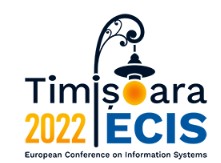Paper Number
1451
Abstract
Influencers in social media are often perceived as a trusted source for many people which is why companies increasingly promote their products through them. However, influencers can also cause reputational damage for a brand. Virtual (computer-generated) influencers can be used to minimize these risks and to better tailor content to a target group of a company. As trust is one success factor of online marketing, we examine differences in the perception of trust in human and virtual influencers. In a first online survey study, we presented N = 112 participants the content of human and virtual influencers, published on Instagram. Preliminary findings reveal that although participants were often unsure whether the presented influencer was human or computer-generated, perceived trust, social presence, and humanness was consistently rated higher for human influencers. To gain deeper insights into potential, unconscious decision conflicts which can determine trust evaluations, a follow-up neuroimaging study is discussed.
Recommended Citation
Hofeditz, Lennart; Nissen, Anika; Schütte, Reinhard; and Mirbabaie, Milad, "Trust Me, I’m an Influencer! - A Comparison of Perceived Trust in Human and Virtual Influencers" (2022). ECIS 2022 Research-in-Progress Papers. 27.
https://aisel.aisnet.org/ecis2022_rip/27
When commenting on articles, please be friendly, welcoming, respectful and abide by the AIS eLibrary Discussion Thread Code of Conduct posted here.


